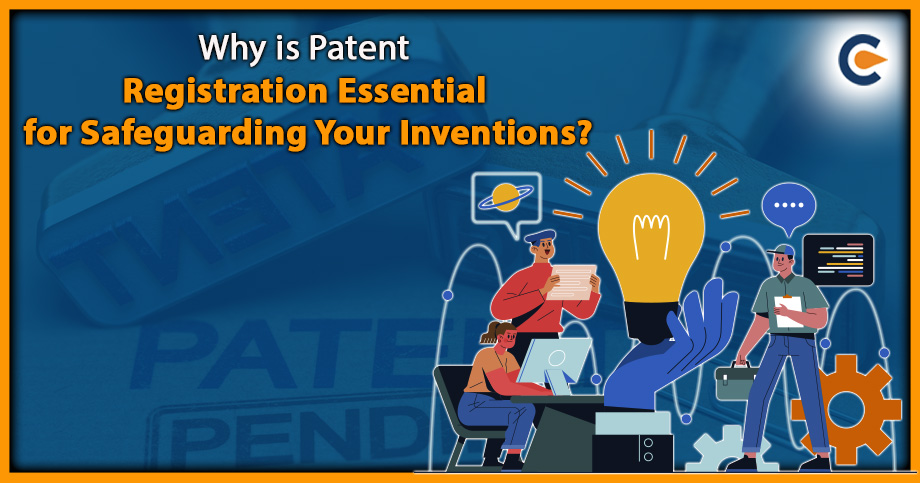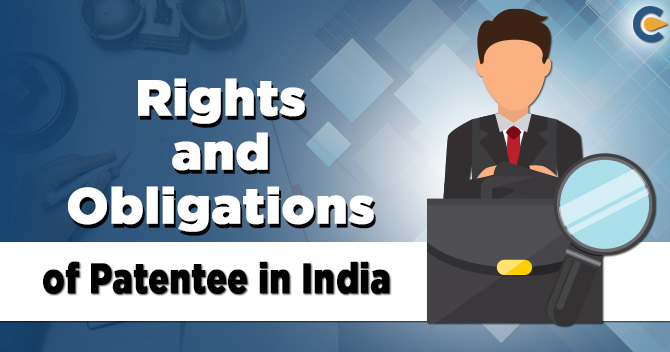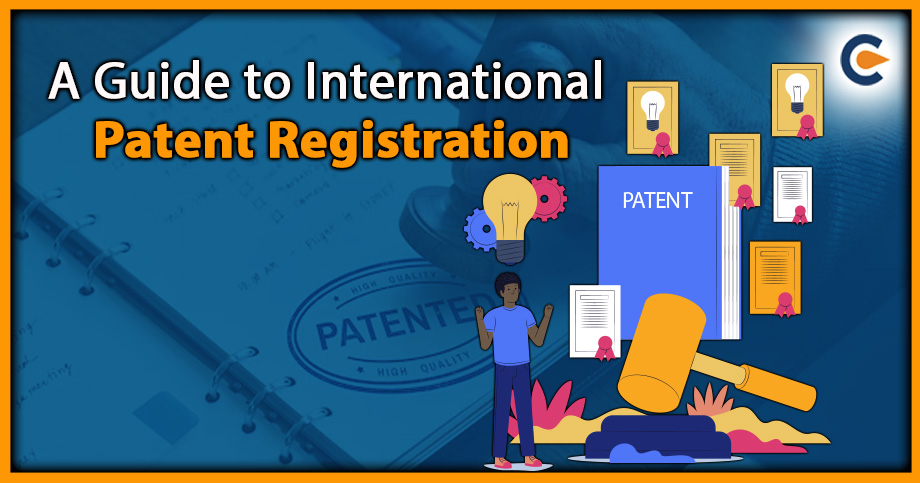In the modern world, inventions are becoming a more significant factor in promoting innovations and economic growth. Innovations in fields like healthcare and finance can result in considerable improvements due to the ability to develop new products, technology, and processes. But, to prevent their ideas from being taken or copied without their consent, innovators must protect their intellectual property by patenting their innovations. Additionally, patenting inventions can benefit society as a whole. New products and technology that solve practical issues and enhance people’s lives can result from patented inventions. For instance, technological advancements in the medical field can result in better disease treatments and cures. In this blog, we will discuss why Patent Registration is vital for safeguarding your inventions.
What is Patent and Patent Registration?
The legal process of registering a patent gives inventors the sole right to use their inventions. To put it another way, a patent is a legal instrument that grants the owner the right to forbid others for a set amount of time from making, using, or selling the inventions without consent. In order to promote innovations and give inventors a chance to make a profit from their inventions, patent registration is a legal requirement. A new, non-obvious, and practical Invention must meet these requirements to be registered as a patent. The innovation is carefully examined as a part of the patent registration process to see if it satisfies these requirements.
When a patent is issued, the inventor is given legal protection, enabling them to take legal action against anyone who violates their rights. For the purpose of preserving intellectual rights and enabling inventors to commercialize their inventions successfully, patent registration is crucial.
What Does Invention Mean?
An idea, method, device, composition of matter, or improvement thereof that is novel and valuable yet is not apparent to a person of ordinary competence in the relevant field of technology is referred to as an invention. It is the product of creative thinking and innovation that represents a significant advancement over existing technology. An invention must satisfy legal conditions, such as novelty, non-obviousness, and utility, in order to be eligible for patent protection.
In order to qualify as novel, an invention must never have been publicly disclosed or made available before the patent application was filed. Usefulness is the quality of having a practical use for an invention. The main focus of a patent application is the invention, and the inventor is given patent protection in exchange for disclosing the specifics of their creation to the public. The public can learn about the invention because it is disclosed in the patent application.
Overview of the Patent Registration Process
The Patent Act of 1970 and the Patents Rules of 2003 both oversee the procedure of registering patents in India. The first step of patent registration is to identify the patentability of the invention, which means to check whether the invention is new, non-obvious, and is applicable to the industry. The applicant has to do a patent search to make sure the innovation is not already covered by a patent or is not identical to one that is already registered. After it is established that the invention is novel, a patent application is drafted. The patent application contains a thorough explanation of the invention along with its drawings and working. The patent application is to be filed in the Indian Patent Office[1]. The application is filed both online and in person.
The applicant is then given an application number after filing. After this stage, the patent application is then published in the Patent Office journal for public inspection. This inspection is for eighteen months from the date of filing or date of priority. After which, within forty-eight months, a request to examine the patent is to be made; only after this is a patent considered for examination. The IPO then examines the patent applications and issues an examination report. The applicant has to reply within six months of which the examination report is received. If the patent examiner is satisfied with everything, the patent will be granted; if not, then hearing might take place. The patent will be granted for 20 years from the date of filing of the application.
Advantages of Patent Registration for Safeguarding Your Inventions
Patent registration is critical for safeguarding your inventions and ensuring that you can reap the rewards of your hard work. Here are some significant advantages of registering a patent:
- Exclusive Rights: Filing for a patent grants inventors the sole authority to make, sell, and utilize their inventions, as well as the ability to forbid others from doing so without their consent.
- Protection from Infringement: Patents give you the legal right to pursue legal action against infringers and give you protection from unauthorized use, sale, or importation of your Invention.
- Opportunities for Commercialization and Licensing: Patents can be licensed, sold or used as collateral, giving inventors a chance to make money off of their creations and draw in funding for their company.
- Enhanced Business Value: By giving the company a competitive edge, patents can boost the value of the company and be utilized as an asset for acquisition or financing.
- Acknowledgement of Innovation: Public recognition of your invention through a patent registration makes it simpler to entice funding, alliances, and collaboration.
- Protection from Future Innovation: Patents can protect the Invention from future modifications or alterations, allowing the inventor and the company to continue to make money off of their intellectual property.
- International Protection: Patent registration can give your idea legal protection in other nations, enabling the inventor and the company to grow internationally and preventing intellectual property infringement by rivals from outside.
Consequences of Not Patenting Your Inventions
By leaving your intellectual property vulnerable to infringement and reducing your ability to make money from your idea, not safeguarding your inventions can have significant repercussions. The following are the consequences of not obtaining a patent:
- Risk of Infringement: In the absence of a patent, your invention is not legally shielded from unauthorized use, sale or importation by third parties. As a result, competitors can violate your intellectual property and steal your ideas for their own financial gain.
- Loss of Competitive Edge: If your invention is not protected by a patent, your competitors can copy it or create items that are similar to it, which reduces your competitive advantage and market share.
- Restricted Financing Options: if you do not have patent protection, your intellectual property is vulnerable to infringement, which lowers the value of your company’s asset. As a result, investors and lenders can be reluctant to support your organization.
- Inability to Protect the Patent Globally: Without a patent, you might not be able to defend your idea in other countries, which would restrict your ability to grow your company and engage in international competition.
- Loss in Revenue Opportunities: if the patent registration is done, you can take advantage of opportunities to make money off of it. For example, you can take advantage of opportunities to sell or license your patent or to use it as security for a loan. This can cost you money and make it harder for your company to expand.
Conclusion
In conclusion, patent registration is essential for safeguarding your inventions and making sure that you can benefit financially from your hard work. Patent registration offers many advantages that can assist inventors in today’s competitive market by giving exclusive rights, protection against infringement, commercialization and licensing opportunities, increased business value, recognition of innovation, protection for improvements in future, and international protection. Your ideas might be stolen or infringed upon without patent registration; you might lose out on the chances to make money from and expand your companies. For safeguarding your inventions and increase your chances of success, it is essential to have legal counsel and register the patent as soon as possible.
Also Read:
Penalties, Suits And Appeals Against The Patent Infringement











